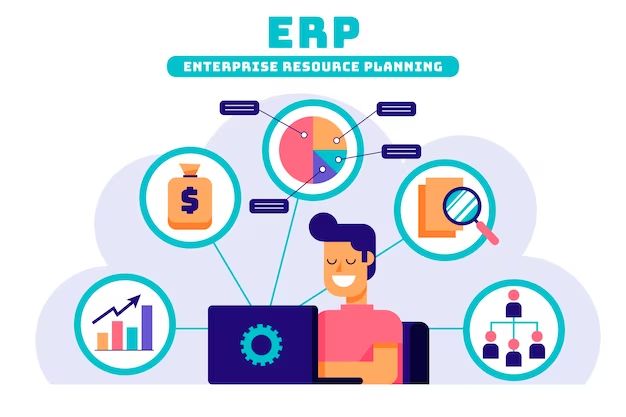Network Attached Storage (NAS) refers to storage devices that are connected to a network and accessible to multiple users. Enterprise grade NAS is designed for business use, with features tailored for large organizations with significant data storage needs.
Key Characteristics of Enterprise Grade NAS
Here are some of the key characteristics that distinguish enterprise grade NAS from consumer or small business NAS solutions:
- High capacity – Enterprise NAS can scale to petabytes of storage to accommodate growing data needs.
- Fast performance – Enterprise NAS maximizes throughput and I/O for handling large datasets and concurrent users. SSD caching, 10GbE and 40GbE networking improve performance.
- Data protection – Features like RAID, snapshots, replication, and backup help prevent data loss and ensure high availability.
- Security – Role-based access control, encryption, IP filtering, and logging help secure stored data.
- Scalability – Enterprise NAS can easily scale out storage capacity and performance non-disruptively.
- Manageability – Robust management software and APIs allow easy centralized configuration, monitoring, and reporting.
- Reliability – Components like redundant power supplies, fans, and networking increase uptime.
- Support – Enterprise NAS comes with 24/7 support and advanced replacement warranties.
Common Use Cases
Here are some typical use cases where enterprise NAS provides significant business value:
- File sharing – Enterprise NAS efficiently handles company-wide unstructured data and file sharing for global workforces.
- Backup target – With vast capacity and performance, enterprise NAS is ideal for backups, archives, and disaster recovery.
- Virtualization and databases – Fast enterprise NAS serves storage for virtual machines, databases, email and business applications.
- Media workflow – Large video and image files are easily stored and shared globally to support media production pipelines.
- Data analytics – Vast datasets are consolidated on enterprise NAS to feed big data analytics platforms.
- Cloud storage – On-premises enterprise NAS provides fast local storage, with cloud sync for archiving offsite.
Leading Enterprise NAS Vendors
Some major established vendors offering enterprise-class NAS products include:
- Dell EMC Isilon
- NetApp ONTAP
- HPE StoreEasy
- Hitachi NAS
- IBM Spectrum Scale (GPFS)
- Qumulo
These vendors offer file storage platforms engineered to excel at the demanding workloads, scalability, availability and data protection requirements of enterprises.
Key Considerations When Choosing Enterprise NAS
Here are some key criteria to evaluate when selecting an enterprise NAS system:
- Scalability – Ensure the NAS can seamlessly scale capacity and performance.
- File protocols – Verify it supports NFS, SMB, FTP, S3 for integrating with business apps.
- Availability – Look for redundancy, self-healing and high mean time between failures.
- Performance – Confirm it delivers the throughput and IOPS needed for workload SLAs.
- Data protection – Assess backup, replication, snapshots and disaster recovery features.
- Security – Review access controls, encryption, reporting and compliance capabilities.
- Cloud support – Evaluate capabilities for tiering or mirroring to public cloud storage.
- Management – Ensure enterprise-grade monitoring, alerting, reporting and APIs.
- Support – Verify 24/7 support with advanced parts replacement.
Prioritizing these criteria will help select a future-proof NAS optimized for enterprise workloads.
Comparing Enterprise NAS to SANs
Storage Area Networks (SANs) are another primary enterprise storage technology alongside NAS. How do they compare?
| Enterprise NAS | SAN (Storage Area Network) |
|---|---|
| File-based shared storage accessed over Ethernet network | Block-based shared storage accessed over Fibre Channel |
| Typically supports NFS, SMB, FTP, S3 protocols | Typically supports iSCSI, FC, FCoE protocols |
| Good for unstructured data like files, images, email | Good for structured databases, transactional apps |
| Easier to scale capacity and performance | More limited in scaling, but very high performance |
| Shared by many users, good data sharing | More limited user sharing |
| Good data protection with replication, snapshots | Requires additional backup server for data protection |
In summary, enterprise NAS excels at file workloads and is easier to scale, while SANs are optimized for block storage performance.
The Bottom Line
Enterprise NAS provides robust, scalable file storage for global workforces. With vast capacity, performance, availability, security and data protection tailored for business needs, enterprise NAS serves as critical storage infrastructure for unstructured data in organizations.
Leading vendors offer dedicated NAS platforms engineered specifically for demanding enterprise environments. When evaluating solutions, look for enterprise features like seamless scalability, redundancy, security, backup/recovery and robust management.
For growing multi-protocol file workloads, enterprise NAS delivers the availability, performance and scale needed to consolidate unstructured data for competitive advantage.

